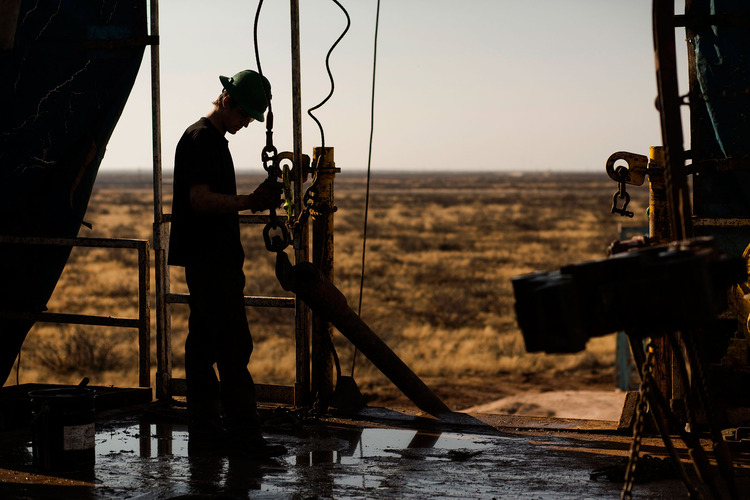- No Dialogue, Niger Delta Problems Already Known
President Muhammadu Buhari yesterday openly acknowledged that the Niger Delta zone has been neglected, promising to establish a roadmap for the development of the oil-rich region.
Vice President Yemi Osinbajo who spoke on behalf of the president at Gbaramatu kingdom in Delta State said he was on a fact-finding tour of the region. Osinbajo later met with leaders, youths and women of Urhobo, Ndokwa, Itsekiri and Ijaw ethnic nationalities at the Petroleum Training Institute (PTI) conference centre in Effurun. At the meeting, the vice president said there was really no need for dialogue with the region as the problems of the area had been well documented and presented to the presidency by the Pan Niger Delta Forum (PANDEF) led by Chief Edwin Kiagbodo Clark, and what was needed now was action.
The visit was a means of restoring confidence in the Niger Delta. It has become crucial in view of the fact that the region needs to be given an assurance of the government’s understanding of its plight and the urgent need to alleviate it. Such an assurance is what is needed to stabilise the region for the production of crude oil on which the economy depends. However, it was expected that much more impact would have been made if the president were there himself.
Osinbajo said at the meeting that the Niger Delta must prepare for a better future devoid of the negative activities that characterised oil exploration in the region.
He said to ensure a better future for the region, all the stakeholders, including state governments and Federal Government must sit down and formulate a roadmap. He said the Buhari administration would leave a legacy that all Niger Deltans would be proud of.
“I’m here as an emissary of the president and I’m here as a citizen of the country and brother to you. I have come with a message and it is a short one. We must prepare for the future. The Niger Delta that we see today is an area of poor infrastructure; a few schools and hospitals.
“In the Niger Delta today, there are signboards of projects that are abandoned all over the place. The Niger Delta is a special region which we have all benefited from and should be treated as a special region.”
Earlier, the spokesman of Gbaramatu kingdom, Chief Godspower Gbenekama said there was so much expectation that the visit of the president would be a game-changer in the region
“We wish to express our profound appreciation for this visit which we believe should represent a game-changer, coming at a time of national economic recession and when the Niger Delta, especially Gbaramatu kingdom, has become more endangered and feeling estranged from the Nigerian nation.
“We believe that this visit will truly build confidence of the people of Gbaramatu kingdom and the Niger Delta in the Federal Government to go beyond hitherto frustrating rhetoric, not just in developing but according dignity and pride of place to the oil-rich region. Indeed, Gbaramatu Kingdom is tall and rich in national oil infrastructure that enriches the nation but lamentably lacking in infrastructure that benefits the people.”
Also, a group under the auspices of the Transparency in Petroleum Exploration Initiative (TIPEDI) called on the Federal Government to revoke all illegally acquired oil block licences in the Niger Delta.
It specifically urged President Buhari and the security agencies as well as the petroleum industry regulatory agencies and the National Assembly to urgently scrutinise and terminate most of the other OML transactions entered into by the former Petroleum Minister, Mrs. Diezani Alison-Maduekwe.
The group’s stand, however contradicted the position of the Ijaw Youth Congress (IYC) which decried the singling out of the Malabu oil deal for probe, saying it was disheartening that while the other oil blocks awarded the same time and through the same process were left untouched, the Malabu oil deal had been subjected to sustained probe because it was owned by a Niger Deltan.
Meanwhile, the House of Representatives Committee on Public Accounts has given the Ministry of Niger Delta a 48-hour ultimatum to furnish it with the financial details of the East West road project that runs from Delta State through Bayelsa and Rivers States to Akwa Ibom State.
The committee led by its chairman, Kingsley Chinda at an investigative hearing with government officials, expressed regrets that the ministry had been denying lawmakers the opportunity to see the project’s contract agreement and relevant documents.
At their last meeting, the committee had demanded the documents, which the ministry had been unable to present, even as the ministry officials led by its Permanent Secretary, Mr. Nwankwo Alo claimed that the agreement was within reach.
Alo, however, said the 48 hours were too short to reproduce the documents in 40 copies, considering their sensitive nature and volume.
He said: “As I speak with you, there is no light to reproduce the documents for you in 48 hours. We will therefore plead for two weeks, considering the volume of the documents you are asking and their quality.”
Insisting on compliance with its directive, Chinda announced members’ willingness to conduct an assessment tour of the project after their next meeting with the officials to ensure that the committee is not misled by the documents provided by the ministry. The next hearing has been slated for Monday next week.


 Forex3 weeks ago
Forex3 weeks ago
 Naira2 weeks ago
Naira2 weeks ago
 Billionaire Watch2 weeks ago
Billionaire Watch2 weeks ago



 Naira3 weeks ago
Naira3 weeks ago






 Naira2 weeks ago
Naira2 weeks ago




 Naira1 week ago
Naira1 week ago




 Naira4 weeks ago
Naira4 weeks ago






 Naira1 week ago
Naira1 week ago























